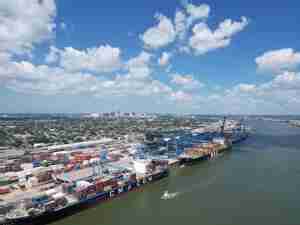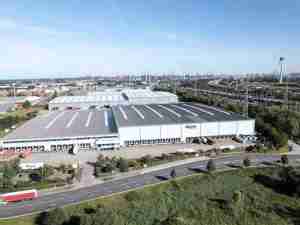Red Kite reassured about Chinese metals financing probe
By: Reuters | Jun 10 2014 at 11:40 AM | Ports & Terminals
Metals merchant and hedge fund Red Kite Group sees the apparent lack of further problems uncovered during a Chinese investigation into metals financing as a good sign, founding partner David Lilley said on Tuesday.
The probe at China’s Qingdao port, the world’s seventh largest, is examining whether warehouse receipts were duplicated so a cargo of metal could be used multiple times to obtain financing.
“In the last week, 10 days since this has been front and centre, every trading company, every bank has been doing a huge amount of due diligence that everything else is OK,” Lilley told the International Derivatives Expo in London.
Metal prices have been hit by fears that the investigation could spread to other ports and prompt a crackdown on using commodities such as copper and aluminium as collateral for finance.
“It’s not particularly big (at Qingdao), but it raises a lot of questions about everything else,” Lilley said.
“I am somewhat reassured by the fact that in that period no other area, no other problem has been uncovered. So in that regard, I suppose, I think it’s going to calm down and everything’s OK ... but you don’t know what you don’t know.”
Lilley declined to say whether Red Kite, which operates extensively in China, owned metal at Qingdao port.
The Red Kite Group, which has more than $2.3 billion under management, covers a range of activities in the metals industry, including physical trading, mine finance and arbitrage strategies.
On Tuesday, two police sources with direct knowledge of the matter said the Qingdao Port Authority and the city’s police were investigating a private metals trading firm, Decheng Mining, over a suspected metal financing scam at the port.
A staff member at Decheng Mining’s Qingdao office, who would only give his surname as Liu, would not comment and a Singapore-registered associate company did not respond to a series of calls requesting comment.
Pledging commodities to a bank, often using a warehouse receipt as proof of ownership, has become a popular way of obtaining finance in China, often to skirt restrictions on raising credit and helping drive up stockpiles at some ports.
Concerns over the events in Qingdao may push foreign banks to cut their commodity financing business in China, Goldman Sachs said in a note on June 9.
In March, the bank estimated commodity finance deals in China were worth as much as $160 billion, or about 31 percent of the country’s total short-term foreign exchange loans.
MISGUIDED REGULATION?
Lilley criticised regulators seeking to impose position limits on metals markets. He said such moves may have the unintended result of increasing, not reducing, volatility.
Metals markets are necessarily made up of big physical participants, such as mining companies and industrial consumers, but imposing a limit on large speculative positions could drain liquidity when the market needed it most, Lilley said.
“Markets can get very one-way. Most physical participants in the market have no freedom to use their own discretion. They will be simply told this is our hedging policy,” he said, adding that speculators add necessary lubrication for markets.
“The natural tendency of the market as we challenge it between oversupply and undersupply is the volatility. If regulators try to constrain that, they’re just constraining something that in the end will explode.”









